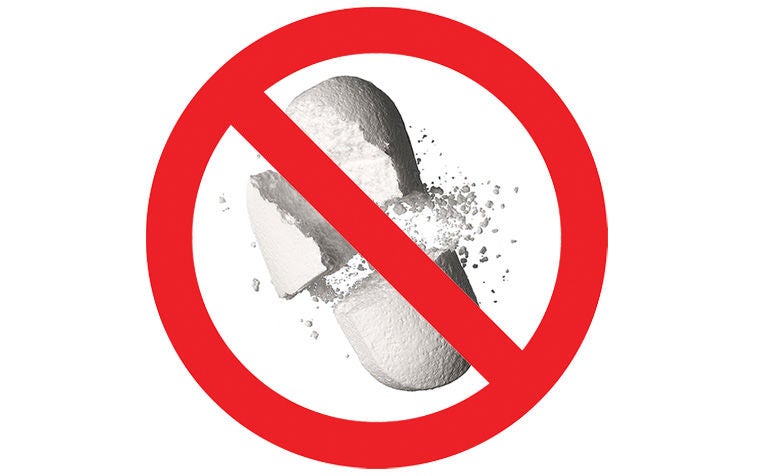HealthXchange will NEVER ask you to transfer money over a call. If in doubt, call the 24/7 ScamShield helpline at 1799, or visit the ScamShield website at www.scamshield.gov.sg.

Crushing pills for consumption may alter the absorption and stability of the medication. It can even lead to hazardous consequences.
Not all medication can be crushed for consumption
Crushing pills for easy consumption can be dangerous as it can alter the absorption and stability of the medication, resulting in a higher risk of gastric irritation. At times, crushing medication inappropriately can even lead to hazardous consequences.
The Pharmacy Department from SingHealth Community Hospitals (SCH), a member of the SingHealth group, explains more.
How to identify medication that should not be crushed
1. Medication name that contains acronyms* such as:
SR: Sustained release
CR: Controlled release
MR: Modified release
XR: Extended release
PR: Prolonged release
LA: Long acting
EC: Enteric coated
HBS: Hemodynamically balance system
* This list is not exhaustive
2. Medication that is in the form of a capsule / granule / pellet
3. Medication that is a hazardous drug
4. Medication that has the cautionary label "Swallow whole, do not crush"
Common medication that should not be crushed
Alfuzosin XL | 
Tamsulosin PR |

Sodium chloride SR | 
Sodium valporate chrono |

Madopar HBS | |
Medication tips
1. Inform your doctor or pharmacist if you (or the patient) have swallowing issues.
2. Always check with your doctor or pharmacist first whether it is safe to cut your medication in half.
Ref: L20
Check out related articles:
Making Sense of Medication Labels
5 Essential Health Screening Tests
Related Articles
Public Events
Get the Health Buddy App
© 2025 SingHealth Group. All Rights Reserved.


















 Get it on Google Play
Get it on Google Play